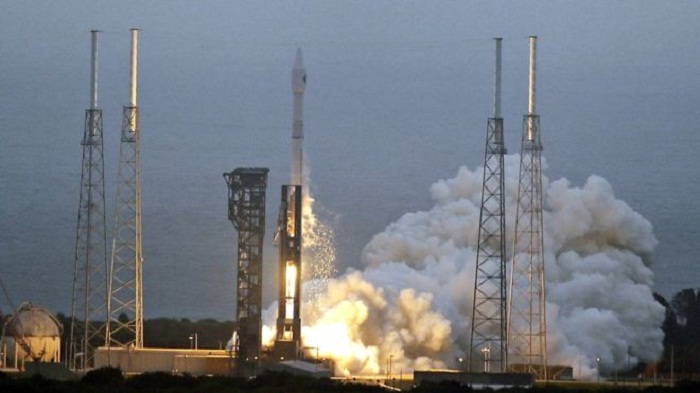The flight took place on Friday from Mr Bezos` Texas test and launch facility.
As has become his practice, he gave no formal advance notice of the event and released only limited details afterwards, along with a glossy video.
November`s outing marked the first time a rocket had launched a space mission vertically from the ground and then brought all elements - booster and capsule - softly and safely back to Earth.
Although all the flights so far undertaken by Mr Bezos have been unmanned, he does eventually plan to fly passengers.
"The very same New Shepard booster that flew above the Karman line and then landed vertically at its launch site last November has now flown and landed again, demonstrating reuse," the businessman said.
"This time, New Shepard reached an apogee of 333,582ft (101.7km) before both capsule and booster gently returned to Earth for recovery and reuse."
One hundred kilometres is regarded as the official boundary of space. New Shepard does not achieve the velocities that would allow the system to make orbit and stay up, but Mr Bezos says his Blue Origin space company is working on a family of rockets that would make this possible.
He promises to reveal further information on that programme later in the year.
Commentators had realised early in the week that another mission was imminent when the Federal Aviation Authority published a temporary flight restriction for a region of the sky north of Van Horn in Texas - the location of the Blue Origin test site.
From social media postings, it was evident that a launch had taken place early on Friday local time, but it was many hours before Mr Bezos and Blue Origin were prepared to comment.
Coming back to Earth to land
Rocketry is now entering a new era, with designers trying to make reusable the systems that have traditionally been regarded only as disposable.
In December, another entrepreneur, Elon Musk, managed to land the booster stage of his Falcon rocket after launching a batch of satellites.
More about:
















































